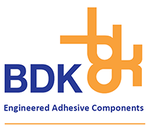As we come to the end of 2024, we wanted to take a look at new medical device trends on the horizon for 2025.
Medical device manufacturers, like BDK, understand how vital it is to keep up to date with industry trends. This enables us to provide innovative thinking and processes to support emerging technologies and ideas.
The Future for Medical Devices in 2025
Wearable Medical Devices
As we know, wearable medical devices have been significantly increasing in popularity for a while and this trajectory isn’t slowing down. Providing users the ability to collect information about their health in a non-invasive way, they deliver better healthcare, enable early detection and provide vital information for medical emergencies in a comfortable way.
From electrocardiogram (ECG) sensors to continuous glucose monitoring (CGM), there is a huge supply for demand. This is why wearable medical devices are still one of the top trends for 2025. There are plenty of opportunities for innovation within this market, especially with other technology available.
Artificial Intelligence
Artificial Intelligence (AI) has been making waves across the world but has been used in diagnostic applications for a while, especially in radiology and cardiology. Its ability to analyse health data in real-time means it can deliver faster and more accurate diagnoses. It has the power to predict patient outcomes using this data and provide personalised treatment plans which enhances patient care. In fact, the FDA has cleared over 700 AI algorithms to date.
Additionally, AI is revolutionising how we approach adhesive formulation and material selection for diagnostic devices. Their algorithms enable improved material compatibility analysis for multi-layer diagnostic assemblies and optimisation of adhesive patterns for maximum device sensitivity. All of these capabilities provide numerous benefits to the healthcare industry, such as reducing costs and time.
3D Printing
Also known as additive manufacturing, 3D printing is another technology that has grown in popularity over the last few years due to its precision and speed. With the ability to create medical devices customised to individual patient needs, it reduces the likelihood of complications and enhances patient outcomes. The technology also enables rapid prototyping which means that medical device manufacturers can deliver devices quicker and more cost-efficiently.
The layer-by-layer construction method used by 3D printing meets on-demand production of medical devices and provides the ability to integrate printed electrodes with precision adhesive layers. Therefore, we will be seeing increased demand for hybrid manufacturing processes that combine traditional converting with additive techniques.
VR, AR & XR Technologies
Immersive technologies like virtual reality (VR), augmented reality (AR) and extended reality (XR) are being used more and more in medical device manufacturing, as well as other healthcare applications.
The first-person perspective they provide enables engineers to visualise and interact with 3D models in the real world during the product development stage. From this, medical device manufacturing processes can be streamlined, improving efficiency in design and prototyping. Rather than an individual medical device trend, this is one that encompasses the entire landscape of the design phase, revolutionising innovation.
Sustainability
Environmental responsibility is a prevalent topic amongst all industries due to regulatory pressures as well as consumer demand for sustainable products. Medical devices contribute to global greenhouse gas emissions due to supply chain, single-use devices and consumables.
Therefore, a big trend for 2025 is to prioritise sustainable practices in medical device manufacturing processes. Some examples of this would be to use eco-friendly adhesive solutions for disposable diagnostics, implement zero-waste converting processes, and optimise material usage through advanced die-cutting techniques. BDK are working towards gaining ISO14001 in 2025 and we will be submitting our initial Ecovadis assessment in-line with our sustainability programme.
Innovation is at our core and we are always forward-thinking when it comes to medical device manufacturing. We recognise that medical technology is always evolving which is why we make sure our capabilities and services evolve alongside it.
With our many years of experience in the medical device industry, you can rely on us to keep you up to date with new trends for medical devices in 2025 and beyond. Get in touch with us today to discuss your next project with us.
